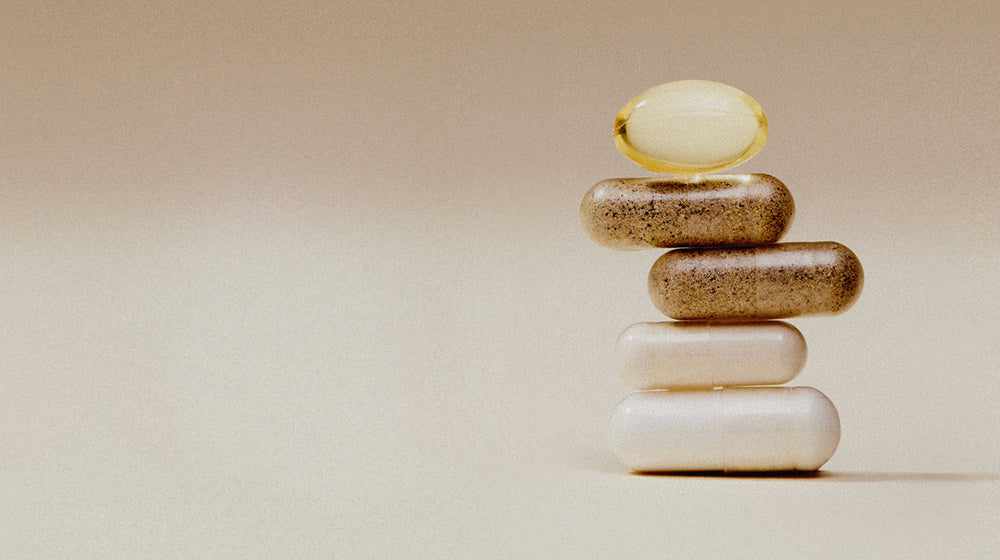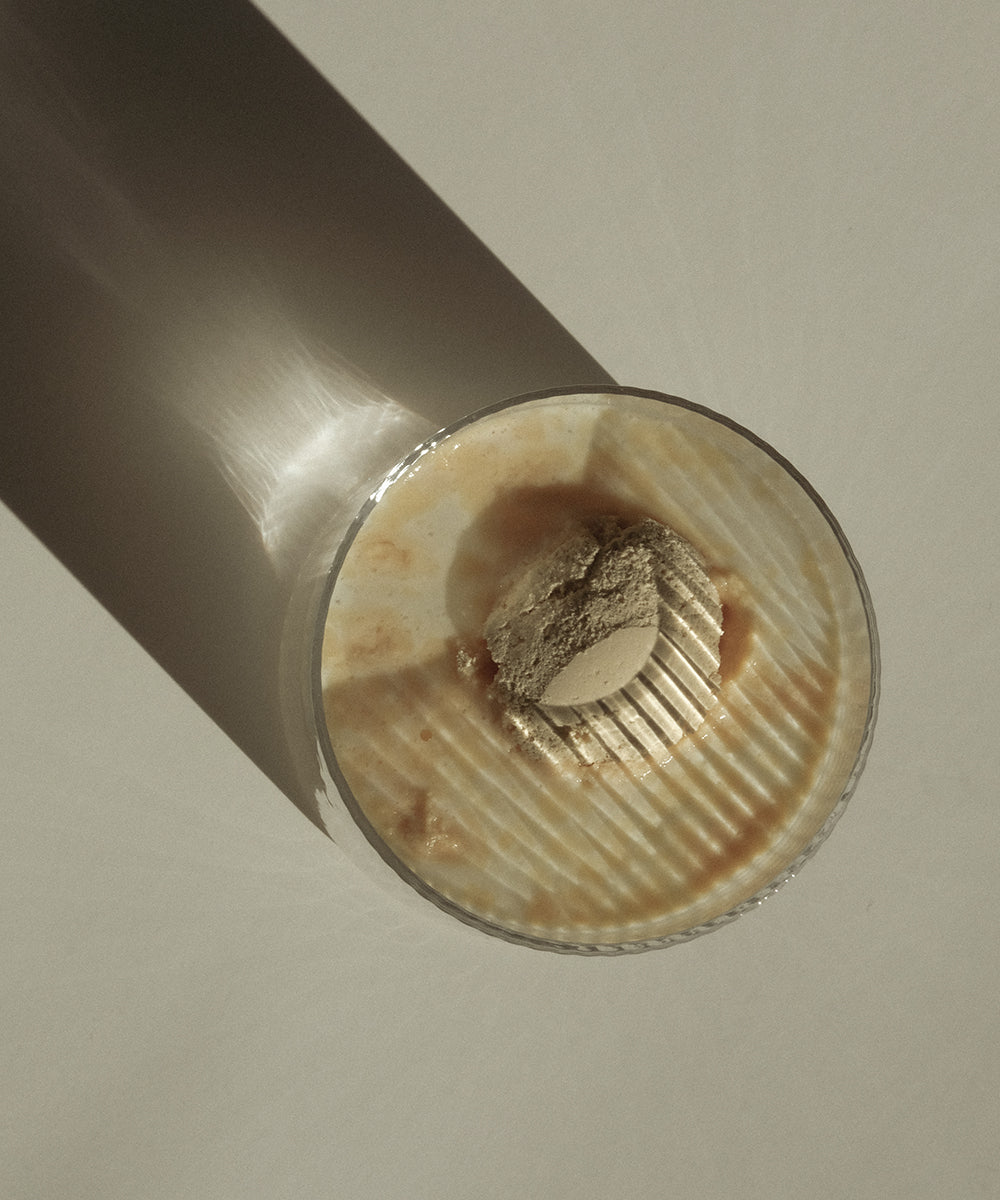Creatine is a popular supplement widely known for its benefits in increasing strength and enhancing athletic performance. But what women might not realize is that despite its bodybuilder reputation, creatine is also highly beneficial for our hormonal and cognitive health. (And no—it won't make us "bulky.")
In fact, creatine's benefits are so well-substantiated by research, that our doctors and dietitians insisted on incorporating it into our Triple-Support Protein Powder—to provide a one-two punch of muscle support and cognitive benefits.
Below we highlight three common myths about creatine—and why it should be a staple in your protein routine.

But first: What is creatine?
Creatine is a substance stored in muscles that helps quickly produce energy during intense activities. It's an organic compound made up of three amino acids, the building blocks of protein—and it's largely found in our muscles and brain. Creatine improves strength and muscle growth by helping replenish energy quickly and increasing overall muscle performance. Because it's also an energy source for brain cells, supplementing with creatine can also support cognitive performance.1
Creatine for women: What are the benefits?
Hormonal fluctuations can affect our body's creatine usage. That's why creatine supplementation can be particularly useful for women during various life stages such as menstruation, pregnancy, after childbirth and before, during and after menopause. Creatine might also be particularly effective for women by promoting an energy-rich environment in the brain.
Shop the Article:
- Best Seller

Triple-Support Protein
$39.95
/ Month
- Fiber, creatine and plant-based protein
- Supports muscle and brain health*
Misconception #1: Creatine will make me "bulky."
Fact: The idea that creatine will cause women to become "bulky" is one of the most prevalent myths. While creatine does promote muscle growth by increasing the water content in muscles and enhancing protein synthesis, the bulking effect typically occurs during a "loading phase"—consuming large amounts of creatine for the purpose of growing muscle mass. In smaller amounts, creatine supports muscle definition and strength rather than excessive muscle bulk. (For example, Perelel's Triple-Support Protein intentionally contains 3 grams of creatine per serving.) For most women, creatine will enhance muscle tone and improve athletic performance without contributing to unwanted "bulk."1
Misconception #2: Creatine is a better fit for men.
Fact: Creatine is beneficial for both men and women, as it supports muscle energy and performance regardless of gender. Although creatine supplementation has been extensively studied in male athletes, research shows that women also experience positive effects, including improved strength, power, and recovery. Women may see slightly less muscle mass increase due to lower testosterone levels, but the benefits are just as significant when it comes to endurance and performance.2
And don't forget the aforementioned hormonal health benefits. Hormonal fluctuations impact most women (hello, menstruation, pregnancy, and menopause!) so supplementing with creatine can help ensure that we're maintaining muscle and cognitive performance during those changes. For women in the perimenopause transition, supporting cognitive function and muscle mass can be particularly crucial.
Misconception #3: Creatine will make me bloated.
Fact: The belief that creatine causes bloating is common, but it is often a misunderstanding of how the supplement works. Creatine can cause your muscles to retain more water. However, this is not the same as bloating. The water retention occurs in the muscle cells, contributing to increased strength and energy rather than causing uncomfortable puffiness. If bloating does occur, it may be due to improper dosage or sensitivity to the supplement, but it's not a universal side effect. Adjusting the dosage can help alleviate this issue for some women—and pairing creatine with a prebiotic fiber supplement can also help circumvent bloating.3

theFolio in Your Inbox
Sign up to receive doctor-backed, stage-specific content in your inbox each week.
The tl;dr: Creatine is a research-backed nutrient that might just be the next MVP in your supplement routine.
References:
-
Creatine Supplementation in Women’s Health: A Lifespan Perspective, NIH
- Common questions and misconceptions about creatine supplementation: what does the scientific evidence really show?, Journal of the International Society of Sports Nutrition
This article is for informational purposes only. It is not, nor is it intended to be, a substitute for professional medical advice, diagnosis, or treatment and we recommend that you always consult with your healthcare provider. To the extent that this article features the advice of physicians or medical practitioners, the views expressed are the views of the cited expert and do not necessarily represent the views of Perelel.





















